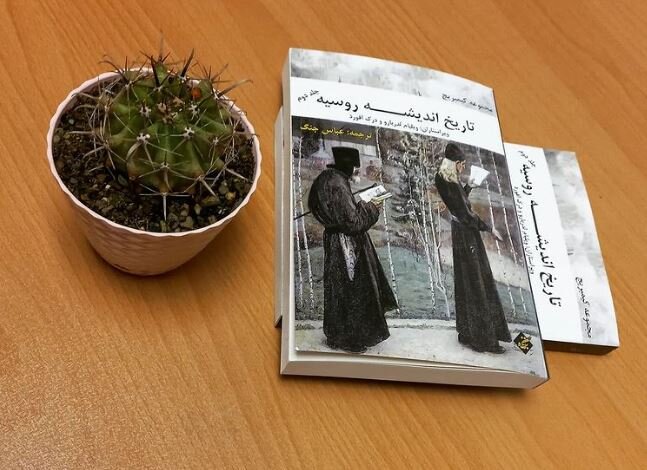“A History of Russian Thought” published in Persian

TEHRAN – “A History of Russian Thought” by William Leatherbarrow and Derek Offord has been published in Persian.
Abbas Jang is the translator of the book published by Bezangah.
The history of ideas has played a central role in Russia’s political and social history. Understanding its intellectual tradition and the way the intelligentsia have shaped the nation is crucial to understanding the Russia of today.
This new history examines important intellectual and cultural currents (the Enlightenment, nationalism, nihilism and religious revival) and key themes (conceptions of the West and East, the common people and attitudes to capitalism and natural science) in Russian intellectual history.
Concentrating on the Golden Age of Russian thought in the mid-nineteenth century, the contributors also look back to its eighteenth-century origins in the flowering of culture following the reign of Peter the Great, and forward to the continuing vitality of Russia’s classical intellectual tradition in the Soviet and post-Soviet eras.
With brief biographical details of over fifty key thinkers and an extensive bibliography, this book provides a fresh, comprehensive overview of Russian intellectual history.
A retired professor of Russian and Slavonic studies at the University of Sheffield, Leatherbarrow is also a lifelong amateur astronomer and observer of the moon.
A past president of the British Astronomical Association, he is currently director of the association’s Lunar Section.
He is the author and editor of over a dozen books, and in 2016 minor planet 95852 was named “Leatherbarrow” after him by the International Astronomical Union.
Offord is a specialist in pre-revolutionary Russian history, thought and literature and in language usage and language attitudes in eighteenth and nineteenth-century Russia.
He has published books on the revolutionary movement in its Populist phase, on the debates in the nineteenth-century intelligentsia (especially between its radical wing and its liberal and romantic conservative wings), and on the ways in which Russian writers traveling in the West used their travels to shape notions of national identity as Russia entered the European world.
Photo: Copies of the Persian edition of “A History of Russian Thought”.
MMS/YAW
Leave a Comment